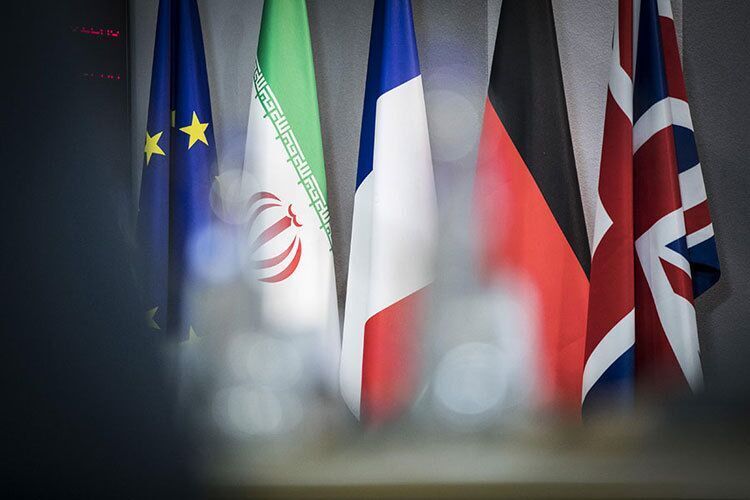
Takht Ravanchi wrote in the article that was published on Wednesday that there is still a window for the US to restore its credibility and bring more stability to the Middle East.
The full text of the article titled 'Biden Wants to Return to the Iran Deal. He Can Start Here', is as follows:
As dawn broke on July 14, 2015, and after intensive and lengthy diplomatic talks, the final details of the Joint Comprehensive Plan of Action — better known as the “Iran nuclear deal” — were finalized. All parties to the accord were hopeful. Javad Zarif, my country’s foreign minister, tweeted: “#IranDeal is not a ceiling, but a solid foundation. We must now begin to build on it.”
This deal was considered by many across the world as an agreement that could change the dynamics in the Middle East. For its part, Iran fulfilled all of its obligations for almost three and a half years from when the deal went into effect in January 2016. The United States, however, has been less reliable. Even during the last months of the Obama administration, the United States was not as faithful a partner as we hoped.
But then came Donald Trump. Mr. Trump campaigned on promises to “dismantle” the agreement. His 2016 electoral victory did indeed change the dynamics in the Middle East — for the worse. Benjamin Netanyahu and other leaders in the region renewed their hopes of harassing and marginalizing Iran. Then, in May 2018, Mr. Trump’s government withdrew the United States from the accord. (Iran, at the request of the remaining participants in the deal, however, continued to comply with the restrictions on its nuclear program for one full year.)
As if the withdrawal wasn’t enough, the Trump administration repeatedly pushed the region to the brink of a catastrophic war. The assassination of Qassim Suleimani, a top Iranian military commander, in January 2020 was the most important of these provocations, to which was added the brazen assassination of our eminent scientist Mohsen Fakhrizadeh in November.
Yet despite these provocations and the fantasies of some Trump administration officials of regime change in Iran, the Middle East has not exploded into a major conflagration. For our part, we have been prudent and patient.
During the Trump years, the Democratic Party, and especially Joe Biden, have been critics of Mr. Trump’s belligerent policies. On various occasions — including in an essay published on CNN’s website in September— Mr. Biden has called for the United States to return to the nuclear agreement. More important, he has committed to reversing Trump administration policies that have increased tensions in the region. Iran would welcome the reduction of tensions in our neighborhood.
Now that Mr. Biden is in the White House, he must make good on these promises.
The United States must immediately adhere to its commitments in the nuclear agreement, which was enshrined in international law in United Nations Security Council Resolution 2231. By doing so, the Biden administration will put the country back into compliance. The new administration should also swiftly remove the new sanctions that the Trump administration placed on Iran. This will indicate the new government’s commitment to rebuilding the United States’ shattered global credibility.
Iran, for its part, has declared on numerous occasions that it is ready to return to the obligations initially agreed under the nuclear deal and expeditiously reverse the measures we have taken since if all of the sanctions are withdrawn that were imposed and reimposed by the Trump administration after its illegal withdrawal from the accord.
Any halfhearted or partial fulfillment of the United States commitments will undermine what Mr. Biden has promised. But it will also be interpreted as insincerity on the part of the new administration, which will provide ammunition for opponents of the nuclear deal to sabotage diplomacy.
Mr. Biden’s Iran policy may go in two opposing directions: He may maintain the sanctions on Iran, which violate the nuclear agreement and which have been rejected by the international community — a move that would be tantamount to continuing Mr. Trump’s ill-fated “maximum pressure” policy. Or he could opt for the prompt fulfillment of American obligations under the nuclear deal, a promise he has already made.
The accord was specifically designed to deal with the nuclear issue and nothing else. Other elements of Iran-United States relations have nothing to do with the agreement and cannot be intertwined with it. Still, if fully implemented, it can be a basis for mutual respect that would be to the benefit of all parties.
But Mr. Biden and his administration should know that any delay in the lifting of sanctions will be construed as a sign of continued animosity toward the Iranian people. Iranians are suffering from this unjust blockade on our economy, and the responsibility for this suffering lies squarely with the United States. The Iranian people will not be indifferent to continued collective punishment. In fact, their representatives in the Parliament passed a law last month obligating the government to take certain measures, such as increasing the level of uranium enrichment, if sanctions are not lifted.
The window is closing. If the new administration does not meet its obligations and remove sanctions in short order, it will destroy the possibility for engagement within the nuclear agreement. But a full and honest lifting of the sanctions will create a new atmosphere that will help ease tensions in the region and beyond.
9417**2050
Follow us on Twitter @IrnaEnglish
IRNA English solhkhabar | Peace International News Agency Peace International News Agency , Peace News , International Agency News of Peace
solhkhabar | Peace International News Agency Peace International News Agency , Peace News , International Agency News of Peace